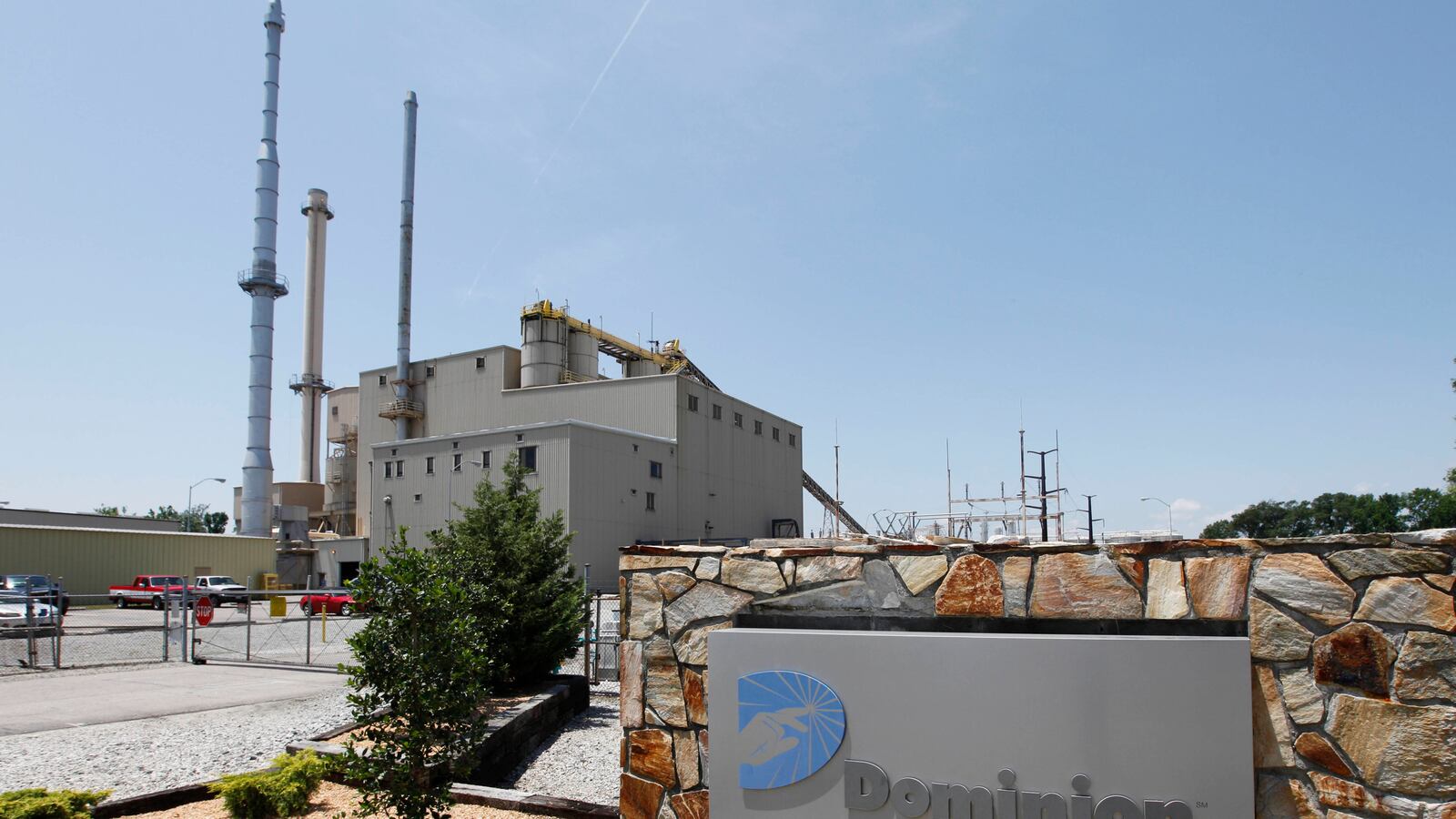Virginians worried about their scandal-plagued governor, torturous traffic, and government furloughs can breathe a little easier. Literally.
Renewable, green, and lower-emission energy production is growing rapidly in the U.S., much to the chagrin of the massive coal industry. But now we’re seeing power companies in coal country make the shift. Last year Virginia was the 11th-largest state for coal production in the U.S.

On July 15, Dominion Virginia Power (a subsidiary of energy giant Dominion Resources, Inc.) completed the conversion of its Altavista Power Station from coal to renewable biomass. The Altavista conversion is the first of three planned by the Richmond-based company.
The plants operated by Dominion will primarily use leftovers from nearby timbering work for the biomass fuel. The plants, which generate enough power to serve roughly 12,500 households, are expected to continuously operate. According to the company, the conversion will reduce emissions of sulfur dioxide, nitrogen oxides, particulate matter, and mercury in the environment. The conversion will replace 194,000 tons of coal at each station.
These are small steps, and the plants in question represent only a tiny sliver of Dominion’s overall generating capacity. But as many states and companies have discovered, there is a significant economic benefit to Dominion’s move. Sure, these plants will no longer be purchasing locally mined coal. But the company is expected to pump $165 million into the conversion process alone and is anticipating creating an additional 100 jobs related to the procurement and shipping of around 600,000 tons of biomass each plant will use in a year. Less coal, more wood.
Environmentalists are cautious, however. While there are tremendous benefits to switching a plant away from coal, there are potential serious negatives to conversion to biomass, as detailed by the Natural Resources Defense Council.
“The biggest issue is sourcing,” says Nathan Lott, the executive director of the Virginia Conservation Network. If such biomass conversions are widely replicated, it will be difficult to fuel power plants with leftover tree branches and other wood products. Enviromentalists fear that a push for greatly increased biomass-based electricity production would lead to destructive deforestation. Lott is hopeful that the move by Dominion “means moving toward a whole suite of renewable” energy sources that are more sustainable and environmentally friendly—including solar and wind.
Although he may not want to tout it within his own Republican caucus, the move to diversify the state’s energy production is part of an energy plan Gov. Robert McDonnell has long endorsed. While he has been cagey about climate change (acknowledges it exists; unsure of how it came about; solution is to reduce carbon emissions), McDonnell has long been a supporter of using biomass, along with other energy options, to move Virginia away from being the second-largest importer of electricity.
Should the move be replicated, perhaps the embattled governor can roll out a new slogan: Virginia is for electricity-derived-from-trees lovers.





